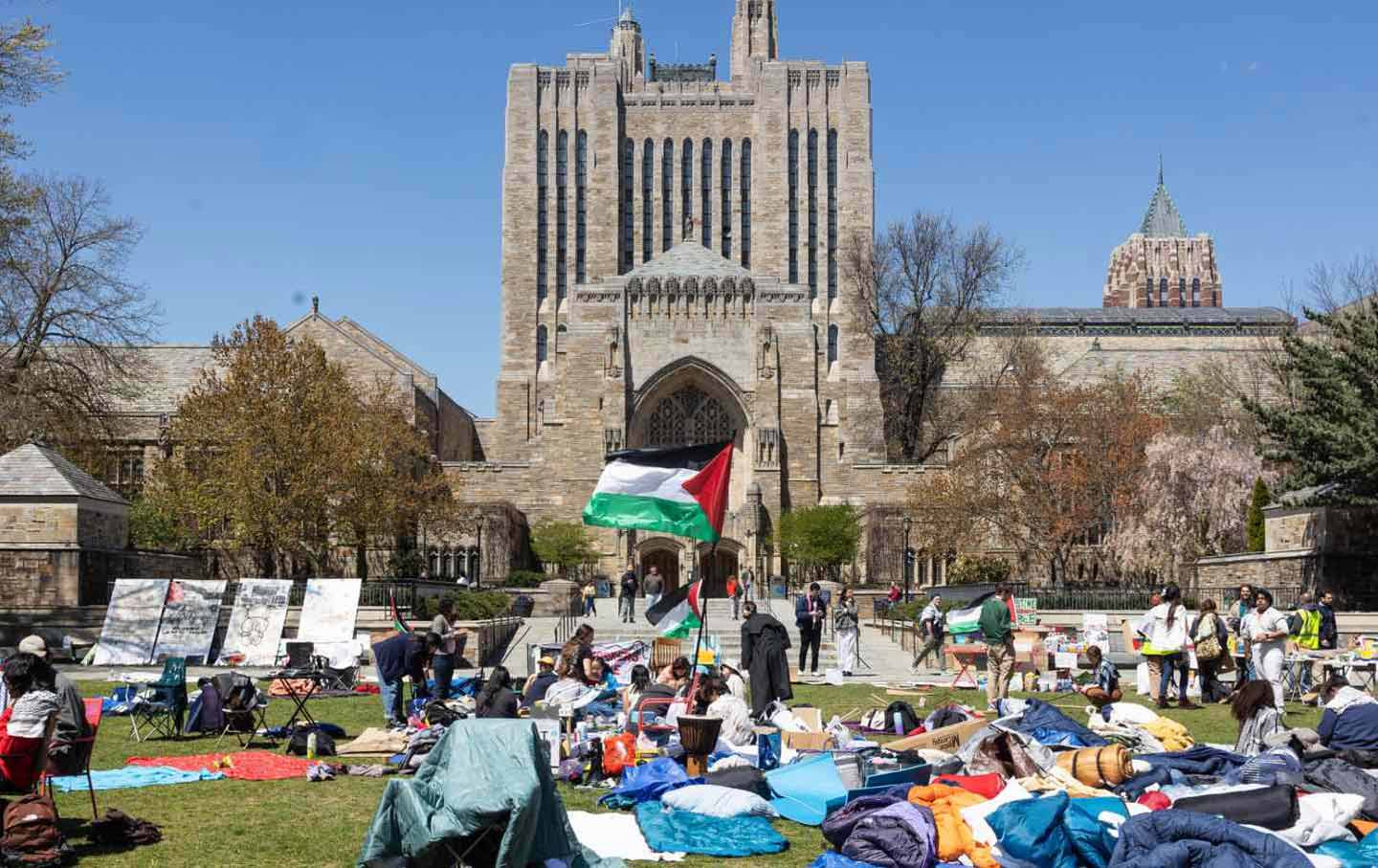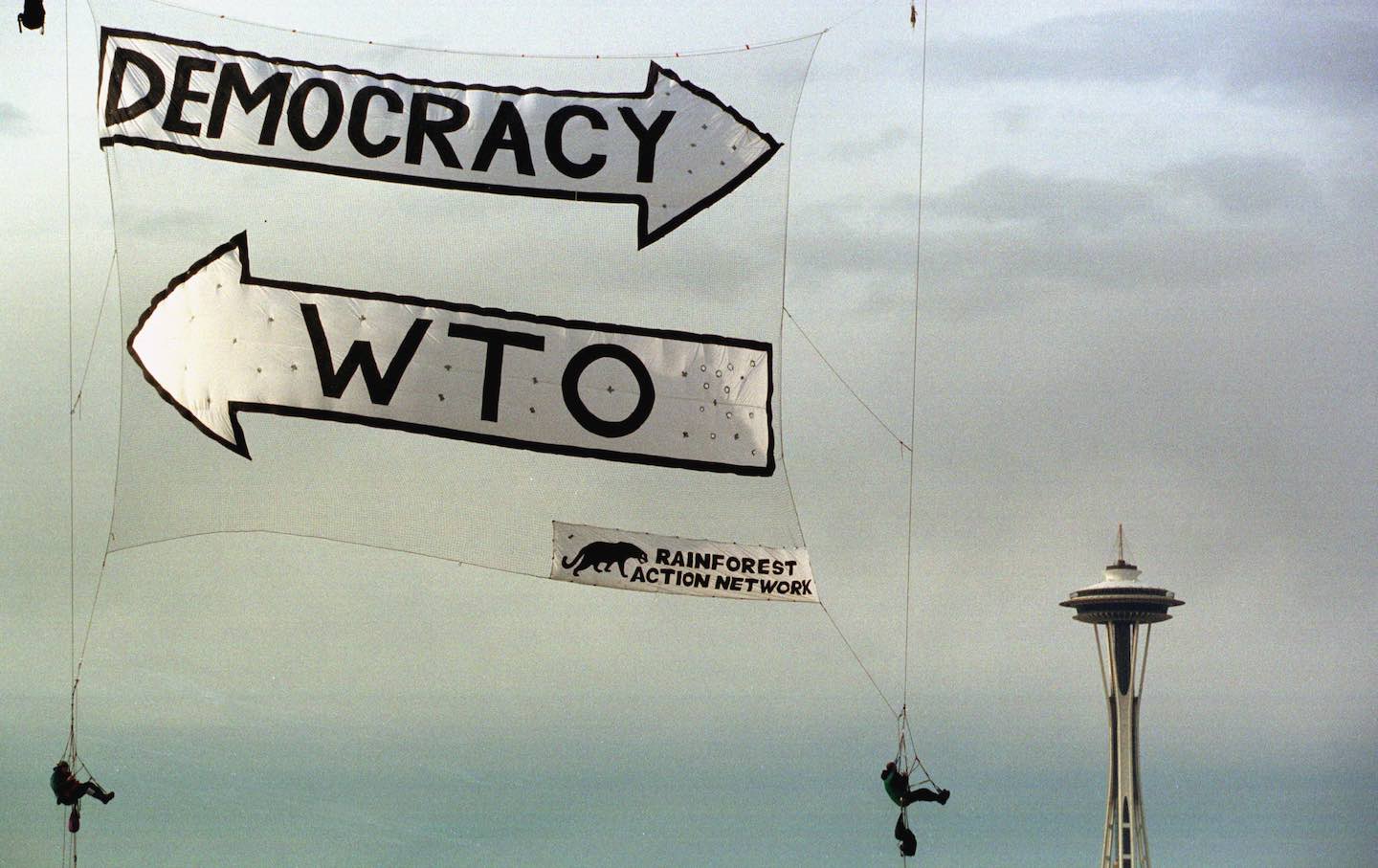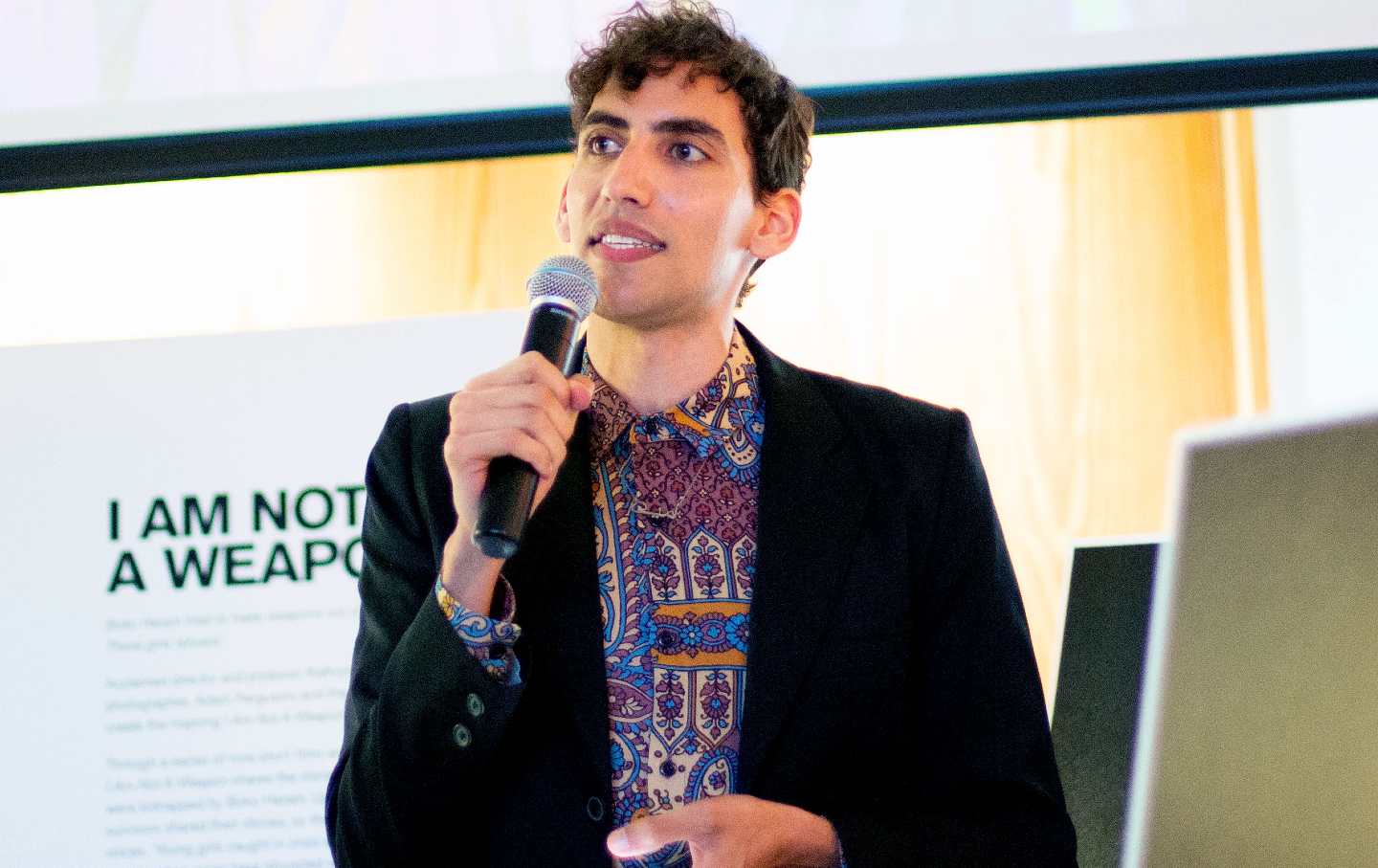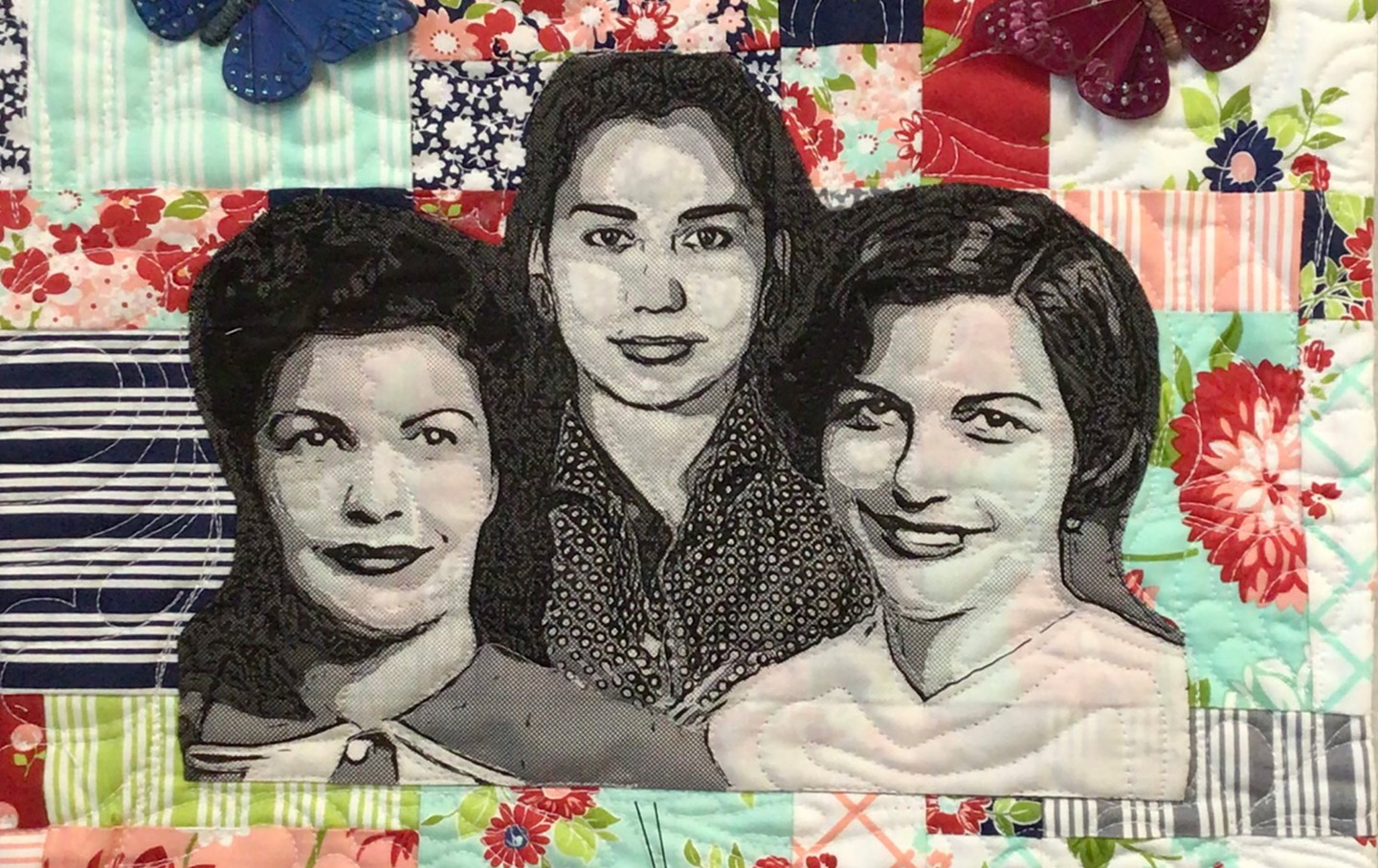Arresting Students for Opposing American Militarism Is a Moral Travesty
Protesters against US involvement in Israel’s war on Gaza may not always get the details right, but they’re on the right side of history.
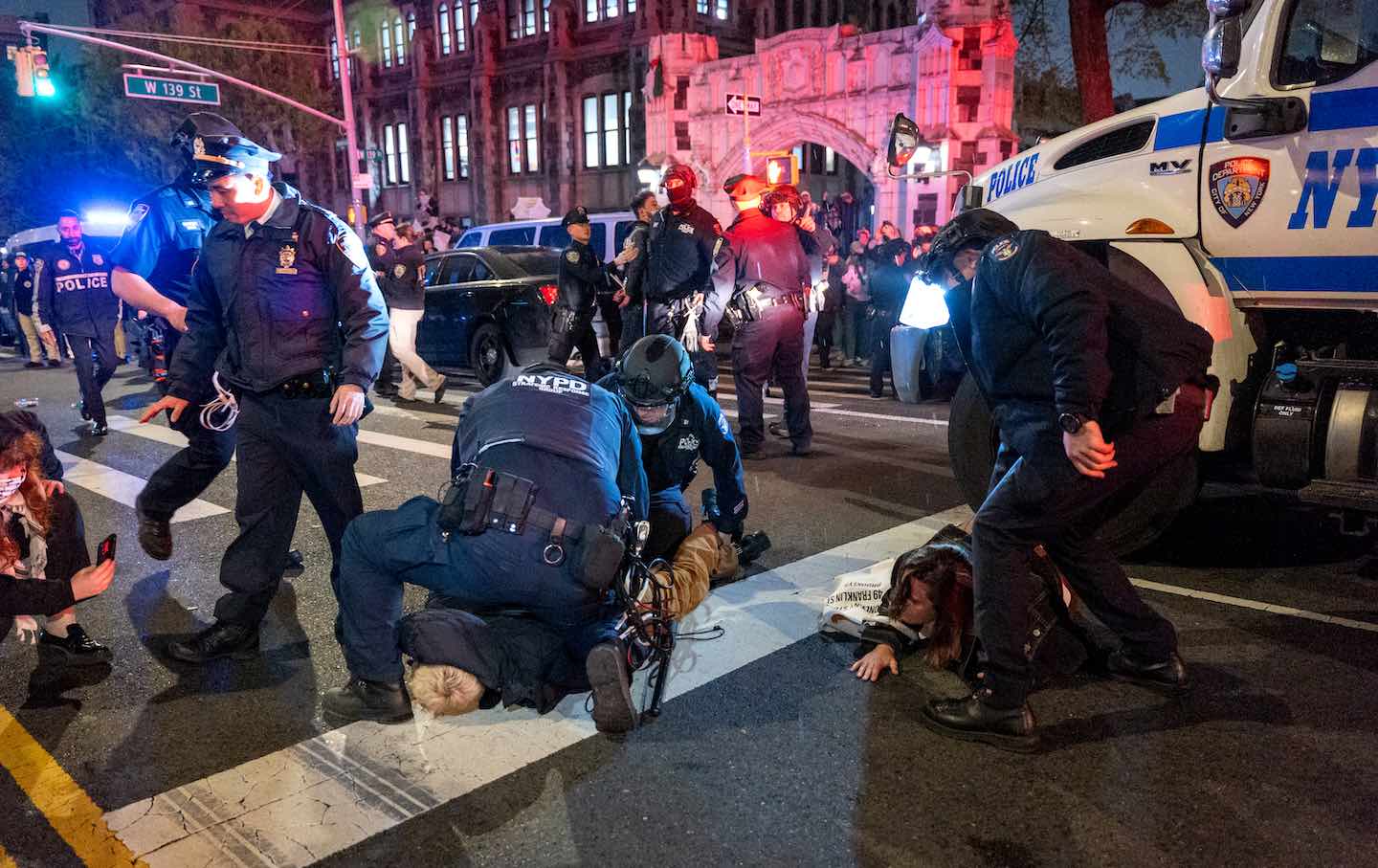
Police arrest protesters during pro-Palestinian demonstrations at the City College of New York.
(Spencer Platt / Getty Images)I write this column on Wednesday morning, hours after police were called into multiple campuses around the country to arrest students who had occupied buildings and central quads in protest at the ongoing war in Gaza. As readers of this column will know, I’m far from being an uncritical supporter of these protests. Too much of the rhetoric is ahistorical, and too much of it ignores the messy on-the-ground reality of the decades-old conflict between Israel and the Palestinians.
Many of the campus protests and protesters do fit into the noble tradition of dissent and civil disobedience against war, militarism, investments in the military-industrial complex, and racial or economic systems of organized exploitation. But it would be intellectually and morally dishonest to ignore the ugly underbelly, the slide toward bigoted antisemitism of at least some on the campus front lines. Witness, for example, the shameful comments by Columbia student Khymani James that “Zionists don’t deserve to live,” and that the campus authorities should be grateful that he wasn’t “going out and murdering Zionists.” (James is now gone from the campus, and, I must say, good riddance.) Protesters at that same campus encountered three students at the edge of their encampment who, at a glance, they deemed to be pro-Israel, and chanted, en masse, “We have Zionists who have entered the camp,” before swarming them and attempting to push them out of the quad. Recall the malevolently antisemitic cartoons aimed at Berkeley Law School Dean Erwin Chemerinsky last month. Or the signs being posted at UC Santa Barbara saying, “Zionists not allowed.”
There’s no question that some of the actions and much of the rhetoric at these protests are deeply troubling—and, for that reason, I personally wouldn’t even begin to consider joining these particular demonstrations. But they aren’t coming out of a vacuum. They are, at least in part, a response to the unconditional support that the United States has given Israel, even as Netanyahu’s noxious government has slid further and further rightward and even as its military has carried out what can only be viewed as collective punishment against the Palestinians of Gaza for Hamas’s murderous spree on October 7.
We can parse the language here and argue whether or not killing 34,000 people, including thousands upon thousands of children, adds up to genocide—or whether, in the horrific litany of mass atrocities that human history is speckled with, it measures up to killing sprees in dozens of other conflicts and dictatorships in the recent past. Regardless, however, of any comparisons to other acts of state-sponsored horror, I don’t see how one can plausibly deny that we have, over the past months, seen war crimes unfolding in the Gaza Strip—and I don’t see why it’s inherently a bad thing that many young people in America are horrified by what they now see occurring and seek to use their generational voice to stimulate change.
When young people protest war crimes, when they are energized to rise up against senseless militarism, even if they do so in a sometimes infuriating, sometimes simplistic and jarringly selective way, they shouldn’t be uniformly villainized. Surely major academic institutions such as Columbia, USC, UCLA, the University of Wisconsin–Madison, the University of Texas–Austin, Yale, and others have the wherewithal to engage in dialogue with their students, rather than giving the green light for heavily armed police to break down the encampments and to arrest hundreds of them. These universities make plausible claims to having on their faculties and among their administration staff some of the best and the brightest that the world has to offer; it boggles the imagination that those best and brightest can’t work out ways to deal with a few hundred unarmed protesters on each of their campuses in a more peaceful manner.
Engage in dialogue, and one might end up at a better place all around—including at a place where these young men and women have a stronger sense of history and a greater awareness of just how reductionist it is to dismiss Jews who fled pogroms and later the Holocaust as being simply the spear-tip of “white, settler colonialism.” Maybe at a place where these protesters will end up also outraged by slaughter in, say, Syria, or Yemen, or the Congo or Libya or Myanmar. Maybe in a place where serious political discussions about how to create a more just Middle East, and, more ambitiously, a fairer world, can replace the often mindless sloganeering of the moment. Send in the police, with batons and tear gas, stun grenades, rubber bullets, and pepper spray—as too many university administrators, fearful of being raked over coals before Congress, are now doing—and none of that will happen. Instead, it’s a fair bet that the protests will metastasize in the run-up to college graduation ceremonies, and that the rhetoric will become even more heated, even more black-and-white, and even less productive.
The Biden administration’s foreign policy decisions around this conflict are out of step not only with students but also with a growing proportion of the American public, only one in three of whom now support Israel’s actions in Gaza. Increasingly, Americans are recoiling at the notion of dropping 2,000-pound bombs on civilians—and at the fact that these bombs are made in the USA and that Israel is given carte blanche to use them as Netanyahu and his ministers see fit. What possible justification is there for flattening an entire enclave, lived in by more than 2 million people, as retaliation over the course of seven months; for imposing a food blockade; for destroying medical infrastructure; for bombing refugee camps; and for killing aid workers attempting to deliver food and journalists attempting to chronicle the carnage? What justification is there for humiliating prisoners—as numerous reports have documented? Or for cuffing detainees so tightly that, in several instances reported by Haaretz and other outlets, blood flow has been compromised and limbs have had to be amputated?
None of these cruel acts will make the sorts of nihilistic atrocities Hamas delivered on October 7 less likely in the future. None will create the conditions on the ground in which democratic, pluralist, tolerant, political movements can flourish in Gaza to replace the atrocious Hamas leadership. In fact, none of this will do anything but shred Israel’s international reputation—without which, in the long run, it will struggle to survive and to flourish.
Americans have long had a bipartisan view of our country’s role in the world that is at best rose-tinted and at worst disingenuous. We like to think of ourselves as being inherently peace-loving, with our armed forces only ever activated in national defense. Yet in one form or another, America has been at war for more than nine of every 10 years of its existence. During the Cold War alone, it was involved in more than 70 “interventions” involving either declared or undeclared military operations. That’s a pretty extraordinary record. These days, we are again flaunting our military muscle either directly, or, as with the war in Gaza, by arming proxies, with alarming frequency. Our addiction to militarism, and to the economic outcomes of arms spending, can only end in disaster.
In the last two years, military spending globally has climbed to its highest level since 1989. That is by no means only the fault of the United States; Putin’s neo-fascist Russia bears a huge part of the responsibility here, as does an increasingly nationalist China. But America spends more on its military than the next nine countries combined, accounting for roughly 40 percent of global military expenditures. The country is in the process of upgrading its nuclear weapons systems—already capable of raining down civilization-ending destruction on the planet—at a staggering cost of $1.5 trillion. This is simply unconscionable, not only as a vast waste of economic resources but also because of the potential for unprecedented slaughter and destruction that such investments exacerbate.
If young people in 2024 are starting to coalesce into an anti-militarist movement, if they are stumbling toward rediscovering the language to challenge an out-of-control military-industrial complex, that’s a good thing. Far better for campus authorities to engage in dialogue with them—to use this as a teachable moment and nurture an anti-militarist message without the bigoted undertones of too many of today’s campus protests—than to push the sort of wholesale law enforcement crackdown underway this week at universities across the country.

